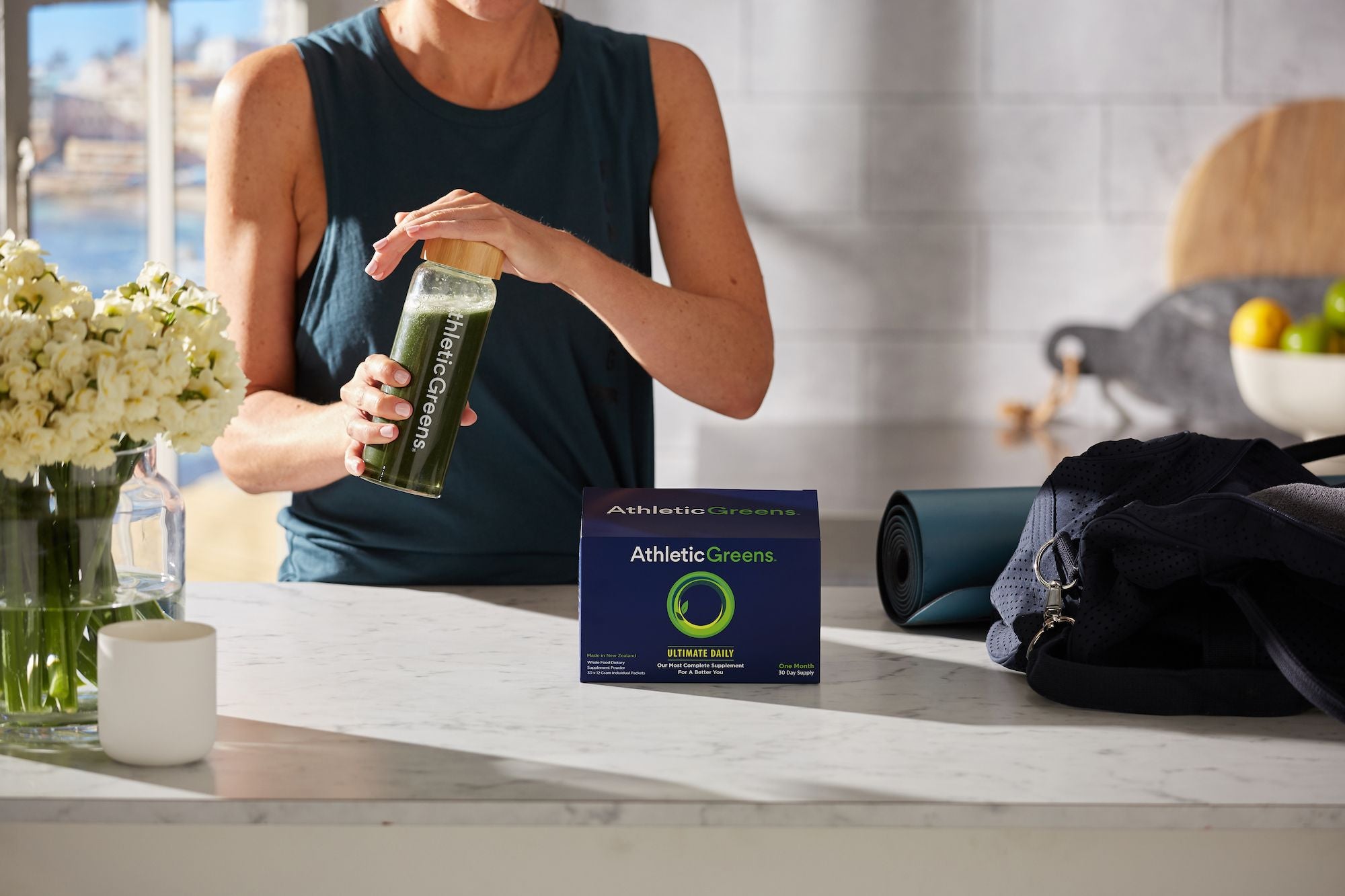Powdered wellness drinks are all over social media, from dietary supplement Athletic Greens to coffee alternative MUDWTR. While some of these products contain beneficial ingredients, experts are cautious about their claims. Below are some tips for more affordable ways to get your daily nutrients. as well as jitter-free coffee alternatives.
If you’re on social media, you’ve probably seen powdered wellness drinks in your feed, from ads about stimulant “mud” drinks to “green powders” that claim to improve your health with every sip. But do they?
While some of these products contain beneficial ingredients, experts say you shouldn’t be so quick to grab them.
“While potent wellness drinks are very popular, appear convenient, and are portrayed as ‘healthier’ than alternatives, these drinks are often purely marketing ploys,” says Jenna Litt, a registered dietitian at Lenox Hill Hospital in New York.

A few different powdered wellness drinks have swept the internet in recent months, including coffee alternative MUDWTR, which, despite its brown color, isn’t made of mud. Instead, it contains mushroom-based adaptogens, cocoa powder, and spices and claims to promote “health and performance” in drinkers. There are also influencer-promoted “green powders,” such as the dietary supplement Athletic Greens, which claim to squeeze your daily nutritional needs into a tasty tonic by simply stirring the powder in water.
Experts weigh in. Should You Take Pre-Workout Powders?
We’ve long been told that salt is bad: but is it?
Are green powders worth it?
“Drinks like Athletic Greens are designed to show consumers that they can meet their micronutrient needs in a small drink, but that’s usually not the case,” explains Litt. “While these drinks can provide additional micronutrients, they do not provide anyone with all of their daily micronutrient needs.”
Laura Ligos, a registered dietitian and sports dietetic specialist, also sees many green powders as an “overpriced marketing ploy.”
“If someone is traveling, needs shelf-stable nutrients, or has trouble chewing, green powders may be an option, but for the average consumer, they just need to spend more time on whole foods,” she explains.
She wishes more people were willing to prioritize their intake of fruits and vegetables, which would provide “a lot more bang for your buck in terms of nutrients.”
Litt recommends always choosing foods first for those deficient in the daily recommended vitamins and minerals.
“Food is the primary source for most vitamins and minerals,” she says, adding that many people can meet their micronutrient needs through their diet.
“If someone is having trouble meeting these micronutrient needs, the first recommendation is usually to start taking a multivitamin and recheck deficiencies with their doctor if necessary,” advises Litt.
What about ‘mud’ drinks?
MUD/WTR is being marketed as a coffee alternative, but Ligos points out that coffee is not unhealthy and also has health benefits.
“However, caffeine can negatively affect people’s stress response and ability to sleep, so I have many clients who benefit from lowering or eliminating caffeine intake.”
Litt explains that drinks like MUDWTR may be considered a “better” choice for some people because of the difference in caffeine content. According to the MUDWTR website, the drink contains one-seventh of the caffeine of a cup of coffee.
Logos says that if someone is intolerant to caffeine, they first want to know why they should choose the best alternative.
“Is it because they overdo it? Is it because they don’t manage their stress well? Is it because they don’t sleep? We all want a crutch, but often it’s the foundation that needs attention,” she explains.
For the best energy, Ligos says:
Getting 7 to 9 hours of sleep, staying well hydrated, getting enough vitamins and minerals, eating enough, and managing our stress
“From there, I recommend moderating caffeine intake or switching to decaf,” she adds.
Do you want to sleep better? Consider moving more
How much water do you need? On social media, people drink a liter a day.
Are powder supplements safe?
While using these products may seem helpful, Litt warns it’s always important to check the label.
“Certain vitamins can be toxic if consumed in excess. Many of these powdered wellness drinks (if taken in excess) can contain excessive amounts of certain micronutrients, increasing the risk of potential toxicity,” she says.
Ligos notes that it’s also important to research green powder, as “many have tested positive for heavy metals.”
Many green powders also use a proprietary blend of ingredients, meaning the final amount of certain elements is unknown.
The same goes for mud potions that contain adaptogens.
“It’s unclear how much is in each product, meaning it’s hard to know the health benefits,” notes Ligos.
If you’re still tempted to reach for supplements like these, remember that they aren’t well-regulated, so it’s important to check that they’re third-party tested.
“This ensures that they are tested for contaminants and have what they say they have in the product,” says Ligos. And she cautions against buying supplements promoted by your favorite influencers or celebrities.
“What works for them might not work for you, and you don’t know if they’ll accept it or just get paid to talk about it.”
Don’t Miss: ‘Bridgerton’ Star Nicola Coughlan Asks Fans To Stop Sharing Opinions About Her Body
Diet Culture: Kim Kardashian stunned in Marilyn Monroe’s dress at the Met Gala. But at what price?





